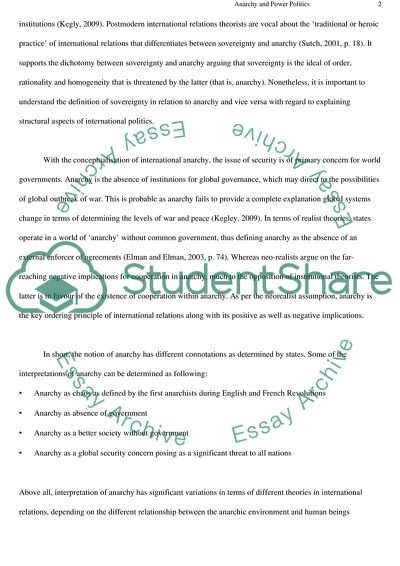Cite this document
(Anarchy and Power Case Study Example | Topics and Well Written Essays - 1750 words, n.d.)
Anarchy and Power Case Study Example | Topics and Well Written Essays - 1750 words. https://studentshare.org/politics/1731939-alexander-wendt-has-argued-that-anarchy-is-what-states-make-out-of-it-discuss-the-implications-of-this-statement-in-relation-to-realist-and-liberal-international-relations-theory
Anarchy and Power Case Study Example | Topics and Well Written Essays - 1750 words. https://studentshare.org/politics/1731939-alexander-wendt-has-argued-that-anarchy-is-what-states-make-out-of-it-discuss-the-implications-of-this-statement-in-relation-to-realist-and-liberal-international-relations-theory
(Anarchy and Power Case Study Example | Topics and Well Written Essays - 1750 Words)
Anarchy and Power Case Study Example | Topics and Well Written Essays - 1750 Words. https://studentshare.org/politics/1731939-alexander-wendt-has-argued-that-anarchy-is-what-states-make-out-of-it-discuss-the-implications-of-this-statement-in-relation-to-realist-and-liberal-international-relations-theory.
Anarchy and Power Case Study Example | Topics and Well Written Essays - 1750 Words. https://studentshare.org/politics/1731939-alexander-wendt-has-argued-that-anarchy-is-what-states-make-out-of-it-discuss-the-implications-of-this-statement-in-relation-to-realist-and-liberal-international-relations-theory.
“Anarchy and Power Case Study Example | Topics and Well Written Essays - 1750 Words”. https://studentshare.org/politics/1731939-alexander-wendt-has-argued-that-anarchy-is-what-states-make-out-of-it-discuss-the-implications-of-this-statement-in-relation-to-realist-and-liberal-international-relations-theory.


